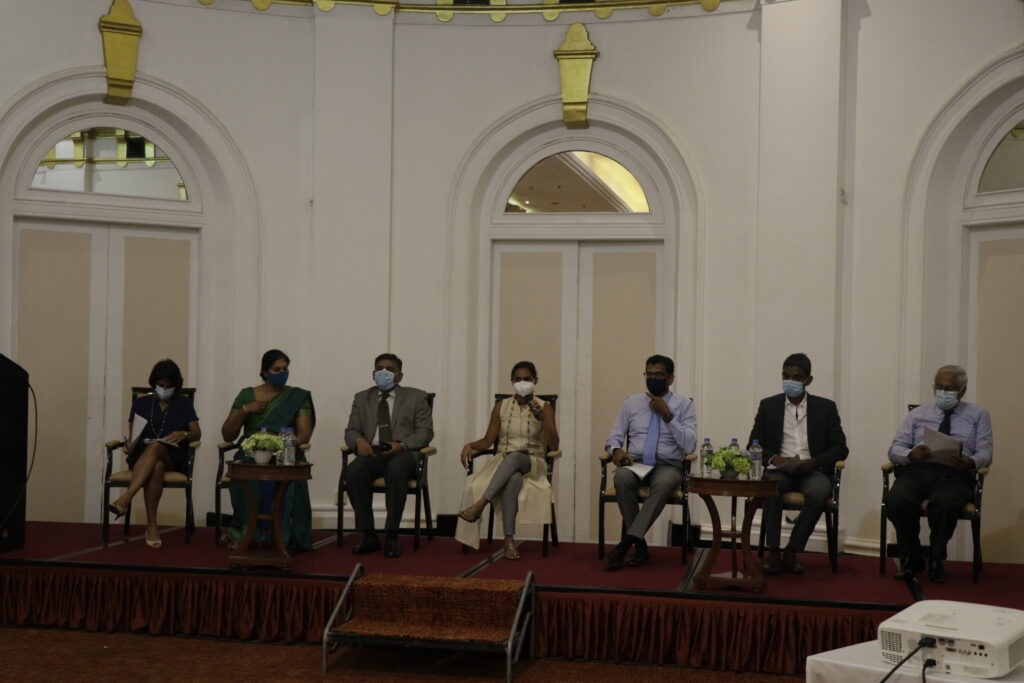Ceylon Chamber Fosters Dialogue on Private Sector Preparedness for Pandemics and Multi-Hazard Scenarios
2 min read
With the need for a proactive approach becoming increasingly evident in the face of mounting socio-
economic challenges, a dialogue on Private Sector Preparedness for Pandemics and Multi-Hazard
Scenarios offered industries with timely insights on formulating strategies to absorb economic
uncertainty at a recent event at the Taj Samudra Hotel.
Organised by The Ceylon Chamber of Commerce (CCC) together with the Social Policy Analysis and
Research Centre (SPARC) of the Faculty of Arts, University of Colombo (UoC), and the Global Disaster
Resilience Centre (GDRC) of the University of Huddersfield (UK), the event saw participation from
both the public and private sector. The event witnessed the launch of two Position Papers on
‘COVID: Economic Preparedness and Building Resilience’. The Position Papers are based on the
findings of a research study conducted by the three institutions and outline recommendations for
the Government and private sector on ensuring pandemic preparedness.
The keynote speaker at the event, Mr. Shirendra Lawrence – Director, MAS Holdings referenced the
ongoing national economic challenges caused by the pandemic, among other factors and stressed
the need for a holistic approach toward multi-hazard preparedness. While lessons continue to be
learned from the current challenges, he said that it is important to actively lay the groundwork for
preparedness in many areas including training, technology, communications and social support.
Speaking at the event, Mr. Chandraratne Vithanage – Senior Assistant Secretary General (CCC) noted
that given the increasing frequency and diverse nature of economic threats and the high
interdependency on economic, social and environmental factors, it is imperative that businesses
implement strategies to ensure protection and sustainability. Professor Dilanthi Amaratunga –Co-
director (GDRC), University of Huddersfield, UK added that with the frequency of such unanticipated
events make recovery more difficult, there is a pressing case for a private-public partnership
approach to ensure such preparedness.
Expressing the need for a quantum shift in the approach and architecture in pandemic preparedness
in Sri Lanka, Professor Nishara Fernando – Department of Sociology, Faculty of Arts (UoC) expanded
on the aim of the study, which was to examine how pandemic, tsunami and other multi-hazard
preparedness could best be integrated into early warning and urban planning, thereby contributing
towards developing a strong disaster risk reduction framework
The panellists at the event were Major General (Rtd) Sudantha Ranasinghe – Director General,
Disaster Management Center, Dr Susie Perera – Deputy Director General, Public Health Services,
Ministry of Health, Rizvi Zaheed- Chairman, Agripreneurs’ Forum, Eng. Nissanka N. Wijeratne –
Secretary General/CEO, Chamber of Construction Industry of Sri Lanka, Shibani Thambiayah –
Chairperson/Jt. Managing Director, Renuka Hotels, Plc, and Vikum Rajapakse – Co-founder and
Director, Kantala (Pvt) Ltd and Co-Founder and Partner at Positive Impact Consultancy. The session
moderator was Jayani Ratnayake – Economist, CCC.